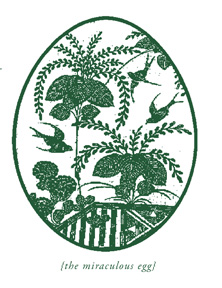
EGGCELENCE
by Chad Garner, APSI
What’s in an egg? Does it matter? Do we even need to eat eggs? Are all eggs the same? These are important questions.
Between 80 and 90 million Americans are on
pharmaceutical drugs for their emotions. About the
same number are on pharmaceutical drugs for their
blood or heart health. The numbers for diabetics,
cancer, migraine headaches, and insomnia are as
notably high. Many millions of folks have one or
more of these problems. The Centers for Disease
Control has alarmed the public by telling us that one
out of three children born since 2000 will become a
diabetic by the year 2020. One out of three of those
kids will die from diabetes or related illnesses.
It is time to invest in good farming practices that
produce nutrient-dense food to help our society with
the health and pollution problems that the future
generations will be dealing with.
Gallus gallus – the chicken, was domesticated
3,500 years ago in India. Since that time the
chicken and the egg have become a staple in the
diets and farming practices of humans on nearly the
entire planet. There’s good biological reason for
the popularity of the chicken and the egg. On the
authentic farm, the chicken is an employee. It acts
in unison with cattle, goats, or pigs to kick apart the
dung, eat fly larvae, and scatter nitrogen, in addition
to giving eggs. This is how large animals like the
buffalo make fertile land. Birds follow the large animal
herds kicking, scratching, and pooping. Behind the
bird is a diverse grass ecology because the bird doesn’t digest most of the nutrients in its food. This leaves their poop full of goodies for the soil, and thereby the farmer. Remember food comes from farms, not from stores. A free-roaming chicken is invaluable for the soil fertility of a farm. And a free roaming chicken is invaluable in making the best egg into eggcelence.
The grass on the farm is greener (chemical free) and the pest count is managed by the chicken. This brings me to the quality of the yolk. The vibrant
orange egg yolk of a pasture-raised chicken doing
its rightful work speaks to the high level of nutrition inside the egg: Vitamins A and D, cholesterol, and most important- balanced fatty acids Omega 3 & 6. Balance of the fatty acids Omega 3 & 6 support the production of prostaglandins in the human body. Prostaglandins control communication within cell membranes and are very important to our health.Most conventional and even organically-fed, caged chickens produce eggs which can contain more than16 times the amount of Omega 6 than Omega 3. Mass producing eggs requires over feeding of food with antibiotics to keep the chicken healthy and laying. Imagine a chicken spending day after day in their feces and urine, and the feces and urine of the
chicken in front of it, and behind it, and to either
side. Sound crowded and “depressing”? You bet
it does. It’s the way confinement animal, high
production operations work. Consider again the millions of humans who suffer with depression, and now those who are over-worked.
Here is a metaphor for how personal mental confusion might play out when our prostaglandins activity is wildly offset: The builder of a house is expecting the carpenters to arrive. And as it happens, the sheet rock workers and painters also show up at the same time. Then right in the middle of the day, the concrete guy shows up to pour the driveway. Utter confusion would result! If the work gets completed, it’s all hardscrabble, rushed, and half-done. The environment would be loud and confusing. The workers would maybe be on top of each other in arguing over whose job is more important. This jumble of work order shows how prostaglandins respond in your cells after years of eating eggs that are conventionally raised.
Cell functions also produce waste and communication is vital to the removal of waste and the distribution of nutrients. It is a simple act of organizing, like when to cook, wash the dishes, or take out the trash. Prostaglandins are ordering functions for us when we need to raise our body temperature for making an immune response to the flu, pneumonia, mold invasion in the lungs, and even cancer. The healing of any disease in the body or mind will require dedication to real and nourishing food to support these cellular pathways of proper action and proper response. Conventional food from confused and diseased
animals only equates to a confused and diseased human that ingests them.
Let’s redeem our connection to the pasture-raised egg in our culture. Asians and Europeans still revere these eggs as brain food.
Indigenous populations hold many kinds of wild
bird eggs as sacred. Integration of the animal
with its true roaming nature brings balance to farm ecology, returns us to wholeness, and makes a good egg. Pasture-raised eggs are simply, a completely real food.